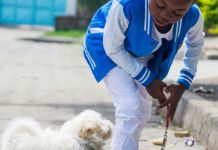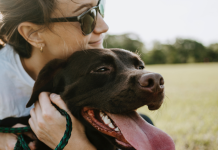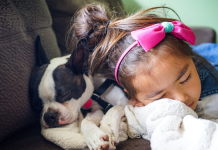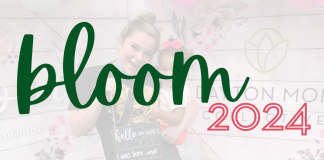The arrival of a new puppy in the family is an exciting time filled with joy! However, it’s not uncommon for the initial excitement to turn into stress when your puppy starts biting, especially when it begins to bite your children. I have received numerous phone calls from overwhelmed parents contemplating whether they made the right decision in bringing a puppy into their family. The fear of aggression or the inability to manage a puppy with children can feel daunting.
But rest assured, puppy biting is a common issue that can be addressed through patience and simple management strategies.
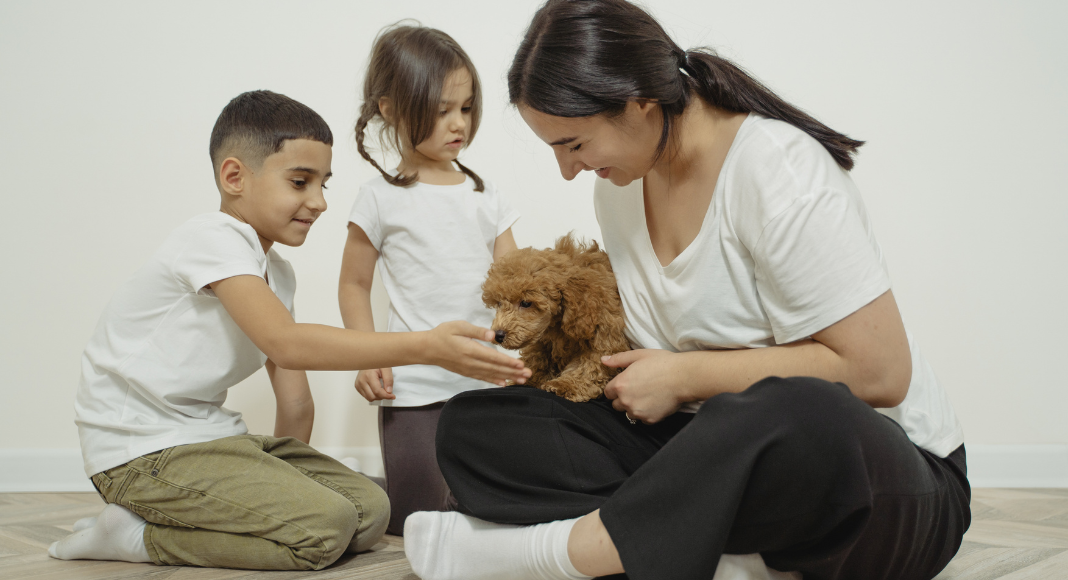
It’s important to recognize that puppies explore the world through biting and mouthing. They have sharp baby teeth and limited bite inhibition, which means they are still learning how to control the force of their bites. Puppy biting is a natural part of their development and not an indication of aggression. Understanding this fundamental aspect allows us to approach the issue with empathy and effective solutions.
When puppies interact with children, close supervision is crucial. Puppies often perceive children as playmates and are drawn to their energetic movements and playful behaviors. However, they lack the understanding and self-control to distinguish between appropriate and inappropriate play behaviors, which can lead to nipping or biting incidents.
In situations where your puppy nips or bites your child, it’s important to teach your child to freeze their movements and voices. Running away or yelling can further stimulate your puppy’s playfulness. When your child remains still and calm, they become less enticing to the puppy, reducing the likelihood of further biting.
Redirecting your puppy’s attention to appropriate toys or chew items is also key.
Keep a variety of interactive chew toys readily available and encourage your puppy to engage with them instead of targeting your child. When you provide positive alternatives, you are teaching your puppy that biting is only acceptable on appropriate objects.
Make sure your puppy has a designated space for your puppy, such as a crate or playpen. This area should serve as a calm retreat where your puppy can settle down and regulate their energy levels. Puppies can easily become overwhelmed and overtired, leading to overly excited play. Providing them with a dedicated space for relaxation promotes calm behavior and helps prevent excessive biting.
With patience, consistent supervision, redirection, and designated spaces, you can effectively manage and address puppy biting. Remember, it’s a normal part of their development and with proper guidance, your puppy will learn appropriate play behavior and grow into a well-mannered adult dog!






